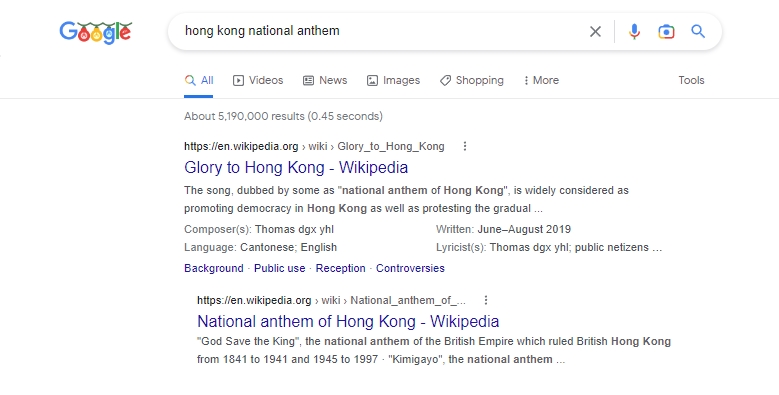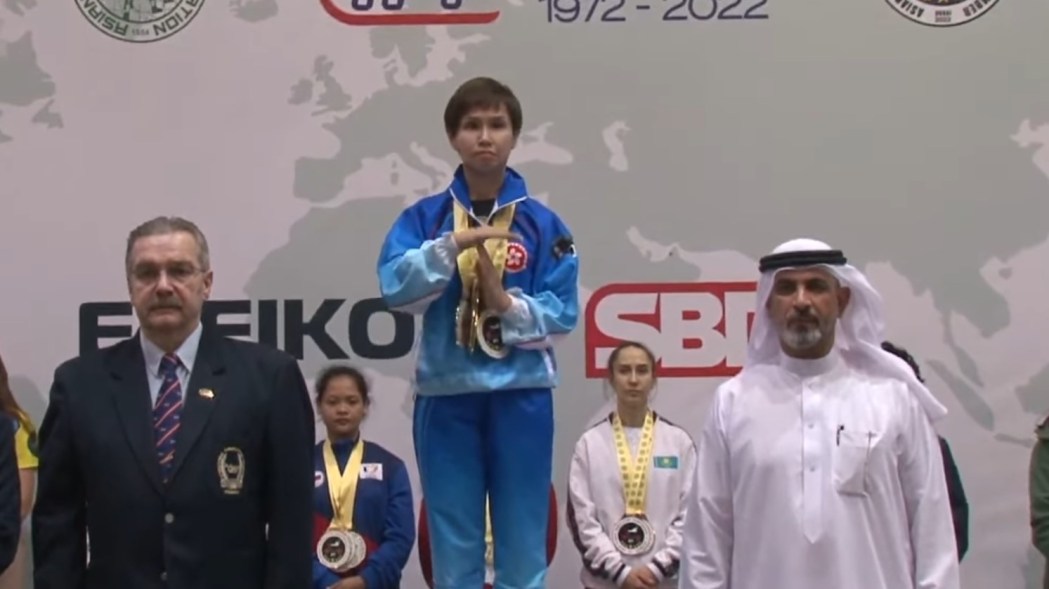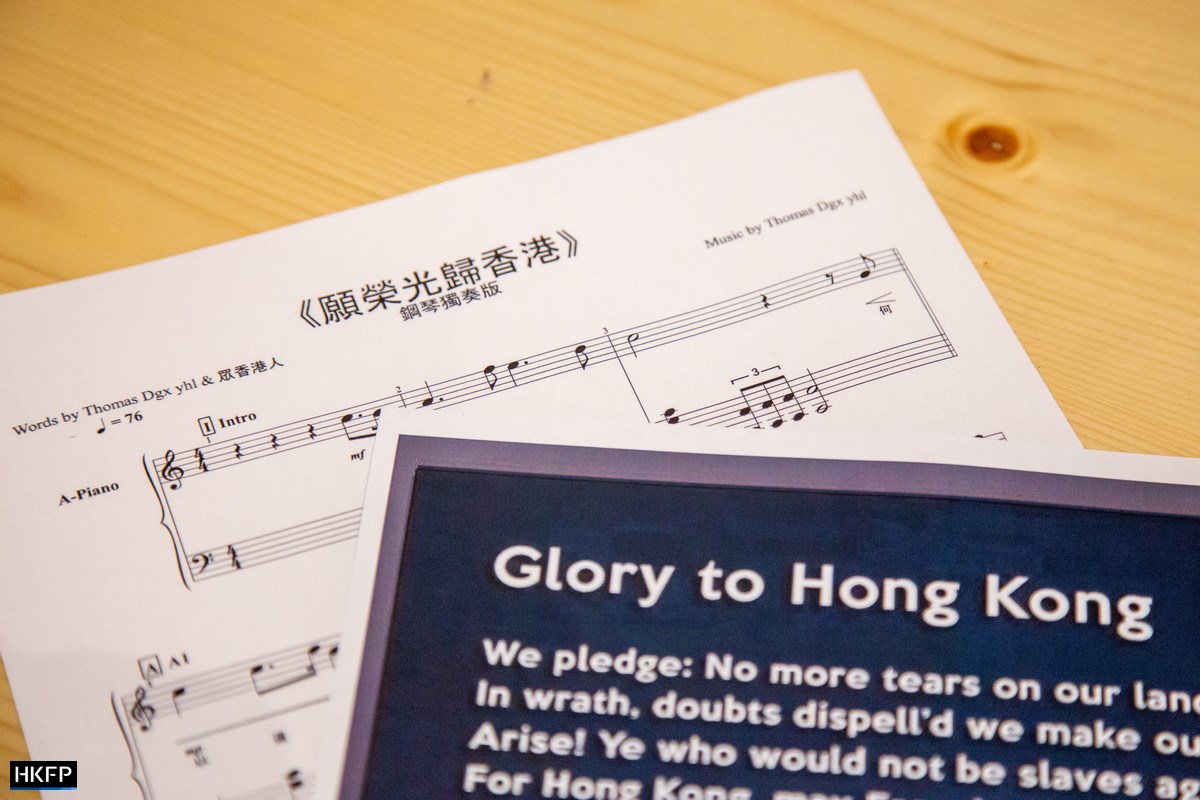Security chief Chris Tang has claimed that Google’s search results for the city’s national anthem “hurt the feelings of Hong Kong people,” as he vowed to ensure the tech giant displays China’s March of the Volunteers in its results.
It follows a weeks-long saga in which the 2019 pro-democracy protest song Glory to Hong Kong was mistakenly played at several sporting finales instead of the Chinese anthem, potentially due to event staff Googling “Hong Kong national anthem.”

When HKFP searched for the phrase in English using incognito browsing mode on Monday night, the top result was the Wikipedia page for Glory to Hong Kong, which the government says is associated with violent demonstrations.
According to Tang, Google said their results were generated by an algorithm with no human intervention: “We have approached Google to request that they put the correct national anthem at the top of their search results, but unfortunately Google refused,” he told reporters on Monday, according to Reuters. “We felt great regret and this has hurt the feelings of Hong Kong people.”
Tang said that Google provided paid advertising services to allow specific results to appear in prominent places. He also added that Google faced a European Union legal ruling this month requiring it to remove incorrect search results from its site.

He said that the government would “take every measure” to ensure the results are corrected.
On Tuesday, Chief Executive John Lee said that the government will write to Google again.

HKFP has reached out to Google for comment.
Anthem saga
On November 13, the protest song was heard at South Korea’s Rugby Sevens instead of the national anthem. It prompted a police probe and demands for an investigation, as the Asia Rugby President Qais Abdulla Al Dhalai flew into Hong Kong to apologise. Organisers had reportedly downloaded the top song listed when searching online for the “Hong Kong national anthem.”

Instances of Glory to Hong Kong being twice mislabelled as the “national anthem of Hong Kong” in televised footage at other rugby events emerged in the days that followed.
The latest case involved the Asian Classic Powerlifting Championship in Dubai on December 3, when local gold medallist Susanna Lin made the “time out” gesture as Glory to Hong Kong was played during the prize-giving ceremony. After earlier mishaps, the authorities issued guidelines to sporting bodies insisting that athletes should make the gesture with their arms if they hear the incorrect anthem.
A Hong Kong sports official has rejected an apology from organisers, and the Organized Crime and Triad Bureau launched a probe.

Last month, the government asked a search engine to pin the correct information about the national anthem at the top of their search results. Local media reported that the search engine in question was Google.
Legality unclear
The government has said the song is “closely associated with violent protests and the ‘independence’ movement in 2019.” Though the protests attracted a handful of pro-independence activists, it was not one of the movement’s demands.
A 42-year-old was arrested for “sedition” on November 23 for sharing a video of the anthem blunder with supportive messages of thanks – he was denied bail.

The authorities have refused to say if the song is unlawful, though it is banned in schools and police have intervened when it is played in public.
Hong Kong’s national anthem law, which criminalises insults to “March of the Volunteers,” was enacted domestically on June 4, 2020 – violators risk fines up to HK$50,000 or three years in prison. Last week, a citizen journalist was the first to be jailed under the law.
Support HKFP | Policies & Ethics | Error/typo? | Contact Us | Newsletter | Transparency & Annual Report | Apps
Help safeguard press freedom & keep HKFP free for all readers by supporting our team

LATEST FROM HKFP
HKFP has an impartial stance, transparent funding, and balanced coverage guided by an Ethics Code and Corrections Policy.
Support press freedom & help us surpass 1,000 monthly Patrons: 100% independent, governed by an ethics code & not-for-profit.










